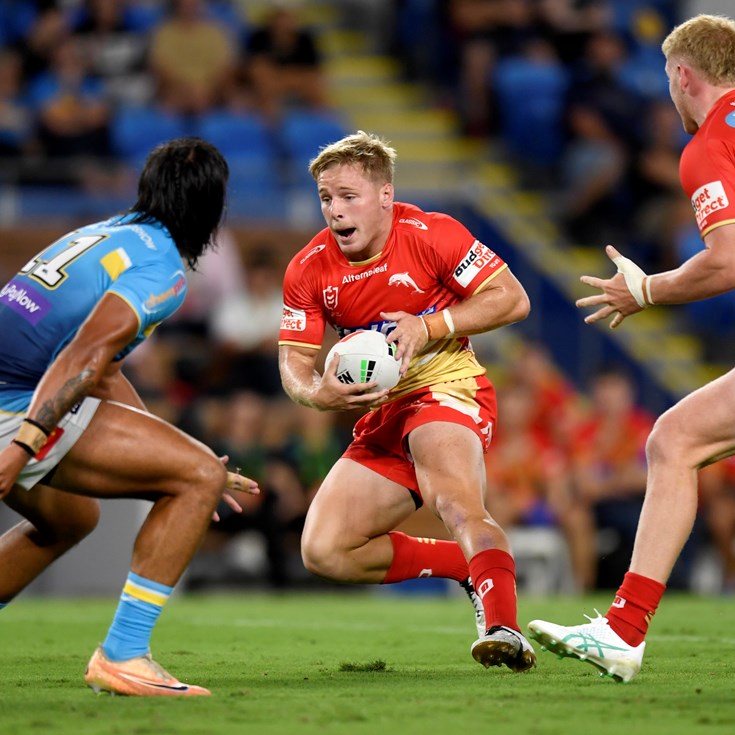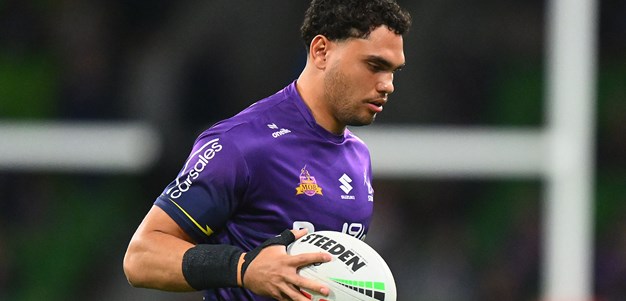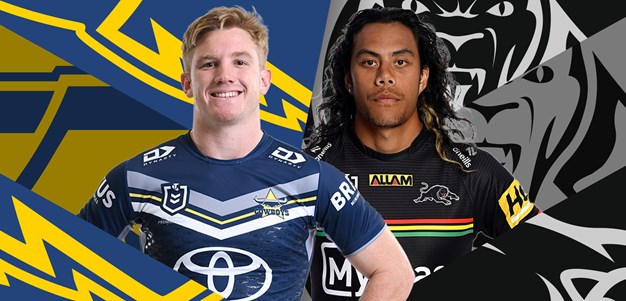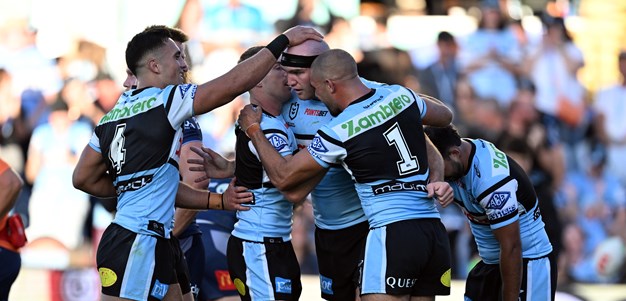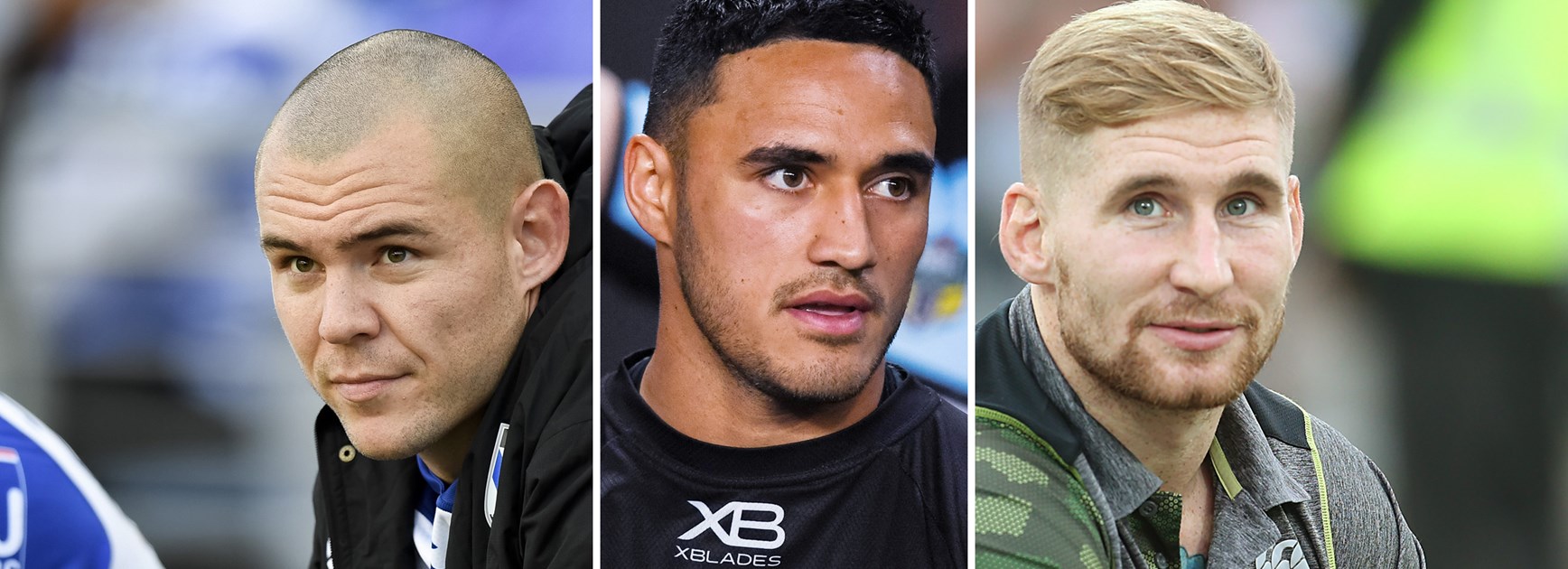
Canterbury officials privately questioned whether the club should pursue some form of action over David Klemmer's impending move to Newcastle despite having two more years to run on his contract, but conceded it would not help them keep the Kangaroos prop.
This is the point Cronulla captain Paul Gallen and others in the game who are angry or frustrated with the sudden departure of star Sharks fullback Valentine Holmes for a shot at NFL need to accept.
If Klemmer or Holmes want to play elsewhere next year, there is little Canterbury and Cronulla can do about it other than negotiate a transfer fee – as the Bulldogs did after Sonny Bill Williams walked out on the club in 2008 and South Sydney did before releasing Sam Burgess to English rugby union.
As Wests Tigers realised after Ivan Cleary agreed to take charge of Penrith from 2021, it is usually better to cut ties with a coach or player whose heart is no longer at the club and find a replacement, but the Sharks have been left high and dry by Holmes without any financial compensation.
The proposed introduction of trade periods in 2020 will establish clear guidelines and restrictions about when players can move clubs but a transfer fee for those still under contract would discourage stars from seeking a release.
Calls to ban players who break contracts are unrealistic and would only drive them towards rival codes, as rugby union found when league defectors were blocked from returning until the code officially endorsed professionalism in 1995.
Graham backs Holmes to chase NFL dream
Had Sonny Bill Williams not been banned from returning to the NRL for five years after he walked out on Canterbury in 2008 he may have returned much earlier than 2013 as the dual code superstar initially struggled with homesickness in Toulon and did not have the support of the New Zealand Rugby Union.
After being pursued across the globe by subpoena servers acting on behalf of the Bulldogs and the NRL, Williams paid the club $750,000 to release him from his contract and agreed to the five-year ban.
The Rabbitohs secured up to $1 million to release Burgess after the 2014 grand final on a three-year deal with Bath but there are few other examples of NRL clubs negotiating a transfer fee for stars joining rival clubs or codes.
However, the practice is common in European sport, including the Super League, and St Helens chairman Eamonn McManus recently announced the club had "obtained an acceptable transfer fee" to release Ben Barba to North Queensland.
Canberra also paid Wigan a transfer fee to allow England second-rower John Bateman to move to the Telstra Premiership next season and needed to do the same to secure the services of hooker Josh Hodgson from Hull KR in 2015.
The largest transfer fee in rugby league is the GBP 700,000 ($1.24m) the Warriors paid Wigan for Sam Tomkins in 2014, while the GBP15,000 Manly paid Castleford for Malcolm Reilly in 1971 and GBP20,000 Penrith paid Dewsbury for Mike Stephenson in 1973 were world records at the time.
Greenberg disappointed to see Holmes go
In soccer, big-name players have buy-out clauses in their contracts and Paris Saint-Germain were only able to sign Brazil star Neymar on a 38 million Euro ($60m) per season deal after meeting the 222m Euro ($350m) fee set by Barcelona. Lionel Messi has a 300m Euro buyout clause in his Barcelona contract.
While Holmes doesn't have a deal with an NFL franchise and will not be earning any money while he trains at the IMG Academy in Florida in the hope of convincing scouts he is worthy of a chance, Cronulla officials could have demanded he pay a release fee from the final year of his contract.
That is believed to be an option presented to Wigan playmaker George Williams after he expressed an interest in playing in the NRL earlier this year and the England star recently told NRL.com he would serve out the remaining two seasons of his contract before considering a move.
The Sharks secured an agreement with Holmes that he would return to the club next season if he does not succeed in the NFL but effectively such a clause only prevents him from playing for a rival NRL club – not those in other codes.
It also means Cronulla need to leave space in their salary cap for his possible return and limits the club's ability to replace Holmes next season.
Gallen suggested in an interview with Channel Nine on Tuesday night that a minimum two-year ban should be imposed on Holmes and he called for the NRL take action against players who break contracts.
However, such measures would favour clubs, who shift contracted players each season to help balance their rosters and salary caps, while making it difficult for the likes of Angus Crichton and Kalyn Ponga to return to the NRL if they switched to rugby union.
The views in this article do not necessarily express the opinions of the NRL, ARLC, NRL clubs or state associations.

